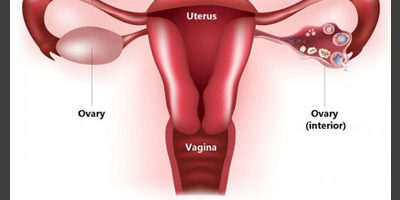Premature Ovarian Failure:
Premature ovarian failure (POF) is a condition that affects women, typically before the age of 40, where the ovaries stop functioning normally and cease to produce normal amounts of estrogen and eggs. This condition is also known as premature ovarian insufficiency or early menopause. POF is a serious health concern that affects a woman’s fertility, menstrual cycle, ovulation, and overall health. This blog will discuss the causes, symptoms, and treatment options for premature ovarian failure.
Causes of Premature Ovarian Failure:
The exact cause of POF is unknown in most cases, but some factors have been identified as potential causes:
- Genetics: A genetic factor may cause POF as it can run in families.
- Autoimmune disorders: The immune system may mistakenly attack the ovaries, leading to POF.
- Chemotherapy and radiation: Cancer treatments such as chemotherapy and radiation can damage the ovaries and lead to POF.
- Surgical interventions: Surgeries that remove the ovaries or damage the blood supply to the ovaries can cause POF.
- Other medical conditions: Certain medical conditions, such as Turner syndrome, Fragile X syndrome, and galactosemia, can increase the risk of POF.
- Exposure to environmental toxins, X-rays, irradiation, and heavy metals may also create a predisposition to POF.
Symptoms of Premature Ovarian Failure:
The symptoms of POF are similar to those of menopause, which include:
- Irregular periods or no periods at all
- Hot flashes
- Night sweats
- Vaginal dryness
- Pain during intercourse
- Difficulty getting pregnant
- Mood swings
- Depression
- Decreased sexual desire
Treatment Options for Premature Ovarian Failure:
There is no cure for POF, but several treatment options are available to manage the symptoms and reduce the risk of complications. Some of the treatment options include:
- Hormone replacement therapy (HRT): HRT is the most common treatment for POF. It involves taking estrogen and progestin to replace the hormones that the ovaries are no longer producing.
- Fertility treatments: Women with POF who wish to become pregnant can opt for fertility treatments such as In vitro fertilization (IVF) or egg donation.
- Bone health management: Women with POF have an increased risk of osteoporosis, so it is essential to manage bone health with antioxidants, calcium, vitamin D supplements, regular exercise, and bone density tests.
- Psychological support: POF can be emotionally distressing, and women may benefit from counseling and support groups.
- Medical Detoxification: Martlife Detox Clinic systematically tests toxins in the body organs with Bioenergetic testing. Customized detoxification is then recommended using several detoxification protocols.
Conclusion:
Premature ovarian failure is a condition that affects women’s health and fertility. Understanding its causes, symptoms, and treatment options is essential to manage them and reduce the risk of complications. If you experience any of the symptoms of POF, seek medical help for a proper diagnosis and treatment. At Medical Art Center, our team of healthcare professionals is committed to providing personalized care to women with POF. Contact us today to schedule a consultation and learn more about our services.







